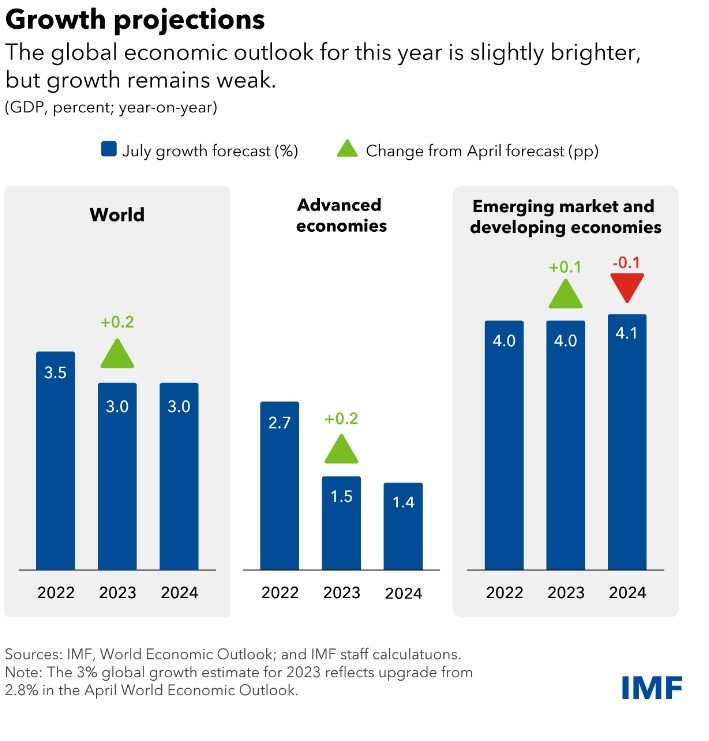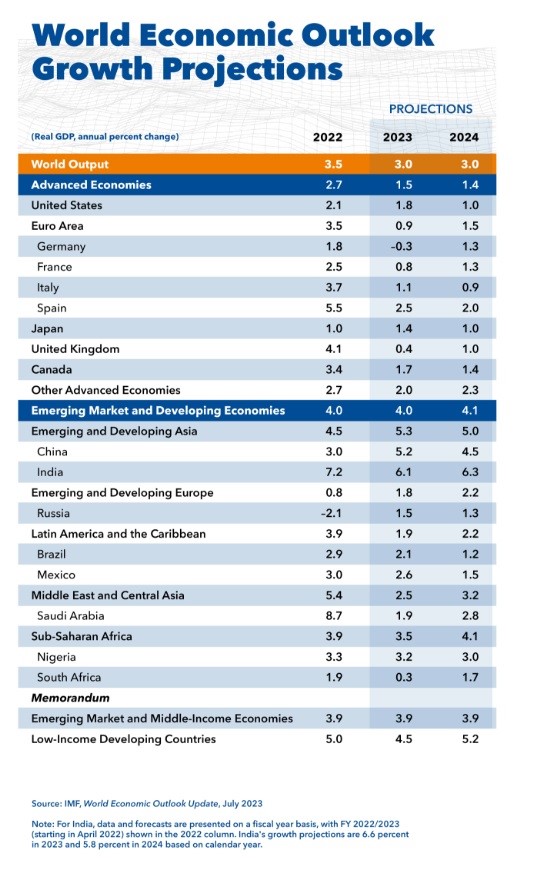The COVID-19 health crisis is officially over, and supply-chain disruptions have returned to pre-pandemic levels. Economic activity in the first quarter of the year proved resilient, despite the challenging environment, amid surprisingly strong labor markets. Energy and food prices have come down sharply from their war-induced peaks, allowing global inflation pressures to ease faster than expected. And financial instability following the March banking turmoil remains contained thanks to forceful action by the US and Swiss authorities.
Yet many challenges still cloud the horizon, and it is too early to celebrate.
Under International Monetary Fund's baseline forecast growth will slow from last year’s 3.5 percent to 3 percent this year and next, a 0.2 percentage points upgrade for 2023 from our April projections. Global inflation is projected to decline from 8.7 percent last year to 6.8 percent this year, a 0.2 percentage point downward revision, and 5.2 percent in 2024.
The slowdown is concentrated in advanced economies, where growth will fall from 2.7 percent in 2022 to 1.5 percent this year and remain subdued at 1.4 percent next year. The euro area, still reeling from last year’s sharp spike in gas prices caused by the war, is set to decelerate sharply.
By contrast, growth in emerging markets and developing economies is still expected to pick-up with year-on-year growth accelerating from 3.1 percent in 2022 to 4.1 percent this year and next. (The corresponding annual growth, shown on the chart below, is 4 percent for 2022 and 2023 and 4.1% for 2024.)

This average, however, masks significant differences between countries, with emerging and developing Asia growing strongly at 5.3 percent this year, while many commodity producers will suffer from a decline in export revenues.
Some of the slowdown in growth reflects the spillover of harmful policies
The rise of geoeconomic fragmentation with the global economy splitting into rival blocs, will most harm emerging and developing economies that are more reliant on an integrated global economy, direct investment, and technology transfers.
Insufficient progress on the climate transition will leave poorer countries more exposed to increasingly severe climate shocks and rising temperatures, even as they account for a small fraction of global emissions. On all these issues, multilateral cooperation remains the best way to ensure a safe and prosperous economy for all.
















